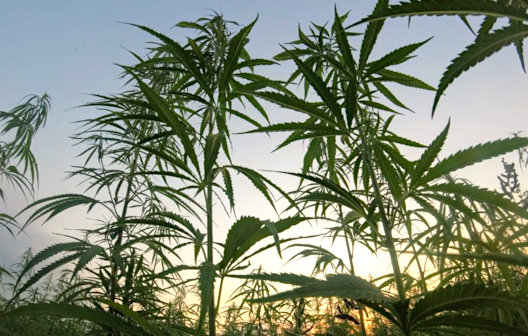image credit: Elsa Olofsson (Flickr)
Federal Law Questions Still Loom for the Cannabis Industry
Marijuana or non-hemp cannabis is still federally classified as a Schedule I drug under the Controlled Substances Act. Since 1970, federal laws have contended that cannabis has no medical use and a high potential for abuse. Even today, cultivating, distributing, and possessing marijuana is still a violation of federal drug laws. What does this mean for the cannabis industry, investors in cannabis companies, and those states that have rewritten their state laws to include medical and/or recreational marijuana?
DEA Position
The Drug Enforcement Administration (DEA) oversees the enforcement of federal marijuana laws. The DEA doesn’t write laws, they just enforce them. With more states legalizing medical and recreational use, the federal laws concerning cannabis have been given a backseat by the DEA. This “looking the other way” has only occurred within the past few years. As states changed their marijuana laws, the DEA pursued federal enforcement actions against medical marijuana cultivators and distributors. These enforcements were upheld by the United States Supreme Court’s decision in Gonzales v. Raich, which held that even businesses that were fully compliant with state regulations risked prosecution for federal offenses. The court’s ruling on the matter makes it clear the DEA, under federal law, has the authority to prosecute cannabis businesses. The DEA has not been doing so.

Source:
DEA.gov
With even more states rewriting their laws to allow marijuana (Arizona, New York, New Jersey) they do so knowing, they are in direct conflict with the overriding federal statutes. This places a number of parties in awkward positions. These groups include medical and recreational users. They also include related businesses — from sellers of seed to growers to those that distribute the products. The situation also strains the rights or freedoms of states to make their own laws and the federal government to enforce clear statutes. The banking system, on which most industries depend for resources, has not risked adding cannabis to the businesses they serve.
Perfectly Unclear Guidance
The federal government has incrementally been moving toward non-intervention in states. Back in 2009, the Obama administration instructed federal prosecutors to look at not pursuing the prosecution of individuals who distributed marijuana as long as they did so in accordance with state medical marijuana laws. This directive is known as the “Cole Memo.”
In August 2013, the U.S. Department of Justice announced an update to their marijuana enforcement policy. It stated that although marijuana remains illegal federally, the Department of Justice expected states that have legalized marijuana to create “strong, state-based enforcement efforts. With this announcement, they said they will defer the right to challenge their legalization laws at this time.” It should not be ignored that the Department of Justice also said that it reserved the right to challenge states any time it felt it appropriate. In 2018, the murky legal field became less assured as former Attorney General Jeff Sessions issued a Marijuana Enforcement Memorandum that rescinded the Cole Memo (under Obama) and permitted federal prosecutors to determine the way in which to prioritize enforcement of federal marijuana laws. Attorney General Sessions instructed U.S. Attorneys to “weigh all relevant considerations, including federal law enforcement priorities set by the Attorney General, the seriousness of the crime, the deterrent effect of criminal prosecution, and the cumulative impact of particular crimes on the community.”
Questions Loom the Cannabis Industry
The ongoing state of uncertainty, knowing that federal law, as written, is quite clear, while state laws may be permissive, it’s also a quagmire for young cannabis businesses. Compliance with regulations and the forced use of cash as banks won’t allow their fintech solutions at dispensaries is a strain on the entire industry.
To address the uncertainty in what most presume will eventually fall on the side of federal legalization, a bill to protect banks that service state-legal cannabis businesses from being penalized under federal regulations was reintroduced in the Senate in April. A third of the 100 Senators have signed on as cosponsors. This follows a refiling of the Secure and Fair Enforcement (SAFE) Banking Act in the House. That bill passed with bipartisan support in 2019 as a standalone bill and again as part of two COVID-19 relief bills. The House bill has more than 100 members listed as cosponsors.
SAFE Banking
The SAFE Banking Act would allow financial institutions to service cannabis businesses without the fear of federal penalties. Banks and credit unions would no longer fear doing business with the growing industry. This should create a strong tailwind for those doing business, particularly retailers.
Take-Away
The movement toward “normalizing” the businesses of medical and recreational marijuana appears to be moving forward. One large sticking point is that it is not legal under federal law and is still classified as a Schedule I illegal substance.
There is a high level of support from lawmakers that are working to make life easier for businesses in legal states; however, there is nothing on the docket in the immediate future that would prevent marijuana companies or users from being federal outlaws.
Suggested Reading:

|

|
Cannabis Customers Served by “Ice Cream Truck” Delivery Model
|
Medical Cannabis Stock Performance vs. Recreational Company Performance
|

|

|
The Future of Cannabis Crosses Many Industries
|
Stem Holdings, Inc. CEO, Adam Berk – C-Suite
|

|
Schwazze (SHWZ) Virtual Road Show – Today May 17 @ 1:00pm EDT Join Schwazze CEO Justin Dye and CFO Nancy Huber for this exclusive corporate presentation, followed by a Q & A session moderated by Joe Gomes, Noble’s senior research analyst, featuring questions taken from the audience. Registration is free and open to all investors, at any level. |
Sources:
https://www.congress.gov/bill/116th-congress/house-bill/1595/text
https://www.fennemorelaw.com/insights
https://www.justice.gov/opa/pr/justice-department-issues-memo-marijuana-enforcement
https://www.fennemorelaw.com/insights
Stay up to date. Follow us:
 |
 |
 |
 |
 |
 |
Stay up to date. Follow us:
 |
 |
 |
 |
 |
 |

